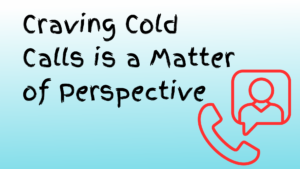
Most people are not so fortunate to be doing exactly what they learned to do in school in the workplace – however, most people are able to take aspects of what they learned and bring it to their professional careers.
The tools and technologies that Trevor used to facilitate his education (something that would have been footnote worthy at best) were the same tools and technologies that Trevor is now selling.
Selling to an EXTREMELY technical audience that you KNOW is more knowledgeable than you can be very intimidating, but here are strategies and tips to help you navigate through it.
Discovery can be more challenging as you may not have all of the answers right then and there – more back and forth as you need to consult internally will lengthen the sales cycle.
While discovery can be long and conversations become more technical, don’t be afraid to ask questions! You can learn so much about not only the topic of conversation, but even things like buying process, budget, and even internal dynamic and prospect firms just by asking questions.
Asking questions and always learning is critical to most effectively service a prospect that is more technical than you.
People love talking about things they are passionate about – your prospect should have no issue filling your gaps in understanding – (they may even tell you more than you care to know).
Have fun with it – use humor, build rapport – these will pay off in both your short term and long term relationship with the prospect.
Only if it adds value to the conversation, don’t be shy about what you don’t know and be very confident about what you do know.
Take efforts to bridge gaps in your understanding on your own time, but only if it adds value.
Being honest with your prospect about what you don’t know can potentially help build credibility as a trusted advisor – but be careful not to lose credibility as a technical expert in your own area.
Remember that while your audience may be more knowledgeable than you about the industry or even the topic of conversation, you will be more knowledgeable about the technology and/or overall solution that you’re selling. Your goal should be to try to convey your understanding of things to your audience so that they can then have the holistic knowledge of both sides and really see the value in what you’re presenting.
Insights from an SE becoming an SE/Sales Rep Hybrid:
You’ll be surprised how much qualification needs to happen by the Sales Rep, typically when you see deals as an SE, they are already qualified.
You will be treated differently by your prospects than from when you were solely an SE. As soon as you also become the person asking for Purchase Orders and signatures, you are viewed differently.
As an AE, you are the CEO of your own quota.
You have to figure out the strategy, process and method to hit that number – if you haven’t thought about everything required to close business from the idea of a company being interested in closing the deal with them, then you have some work to do.
As an SE, you typically are more reactive to the demands of Sales, this will no longer be the case as you will be on the front lines as a Hybrid.
You will need to factor in the opportunity cost of every action and its effect on your inability to do others – eg. If I spend 2 hours prepping for this demo, I will lose 2 hours of prospecting, of building business cases for existing deals in the pipe, of time to overall close business.
Everyone moving into being a Sales Rep from anywhere else in the organization will know the pressures that sales has put on those departments in the past and will promise to avoid those same situations – THIS IS EASIER SAID THAN DONE. Awareness and empathy will go a long way in maintaining positive relationships with those in your previous role and can benefit you when you are really in a bind.
If you struggle with “softer” activities like reporting on or tracking activities or even interacting with others – make use of your technical expertise to make it interesting for you. Write a script that automates reports, develop a social algorithm that works for you to interact with others. Leverage what you’re good at to be better at what you’re not as good at.
Leadership needs to more strongly consider cross-training between Sales Engineers and Account Executives/Managers.
When you can truly empathize with your colleagues, you can work better together.
Not So Fire Round:
What Do You Love About Your Role?
When people that are smarter than him use the software that he knows (and taught them how to use) in ways that he didn’t know to be possible. Seeing the confluence of their own scientifically technical expertise and their newfound technical expertise in Trevor’s solution is extremely satisfying.
Things You Would Change:
Finding prospects out of anywhere.
While moving into new roles, you’re going to naturally be out of your comfort zone to develop the skills required to excel in the part of the role that’s new to you. So while this is something he would like to change, he sees it as absolutely necessary.
Books or Resources Every SE Should Read/Use:
What Separates the Great SEs from the Rest?
A desire to improve
Being humble
Being human.
Recognition of the importance of continuous learning.
Trevor’s Profiles:




This Post Has One Comment
Pingback: #113 Becoming a Technology Evangelist | We The Sales Engineers